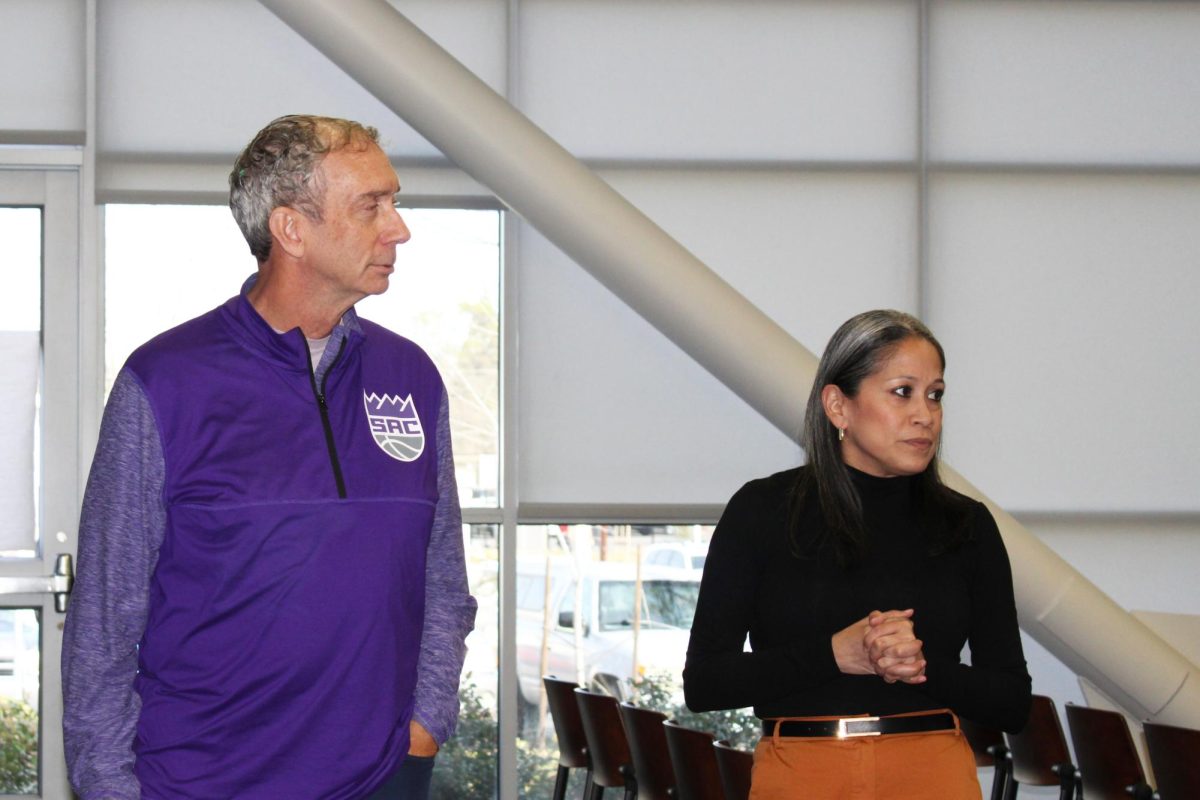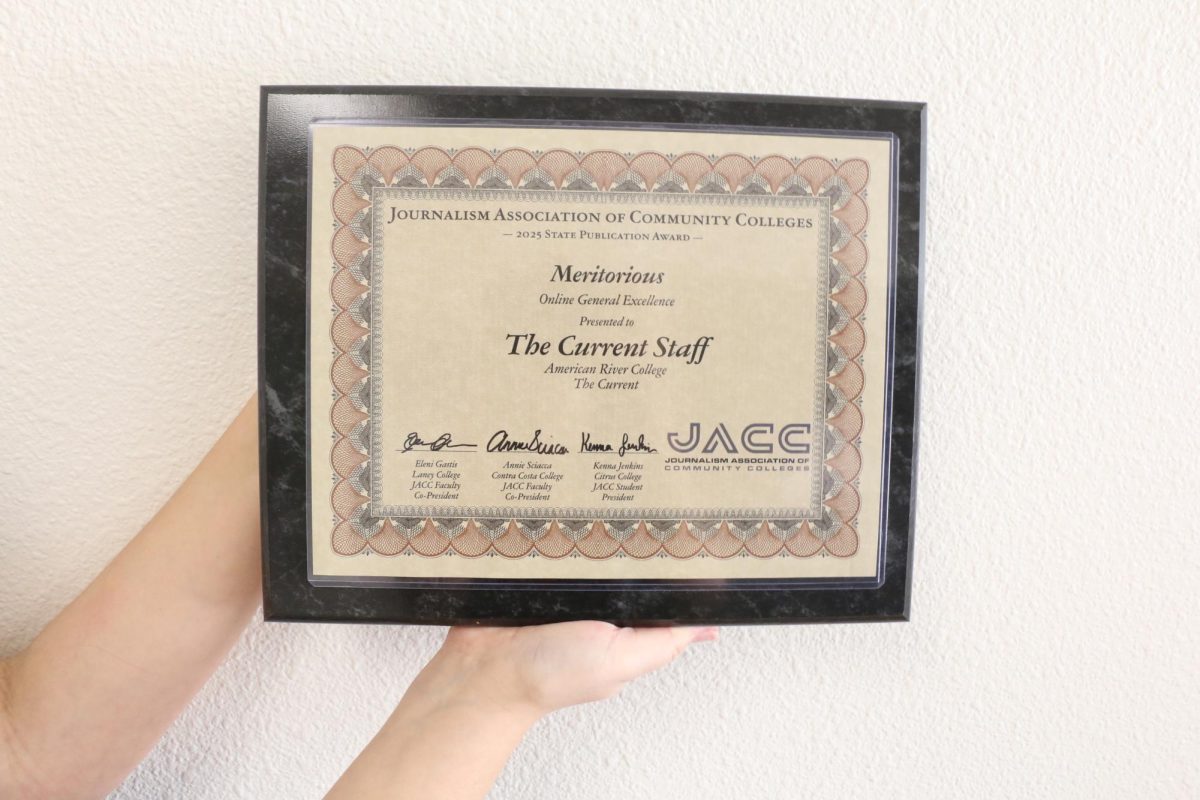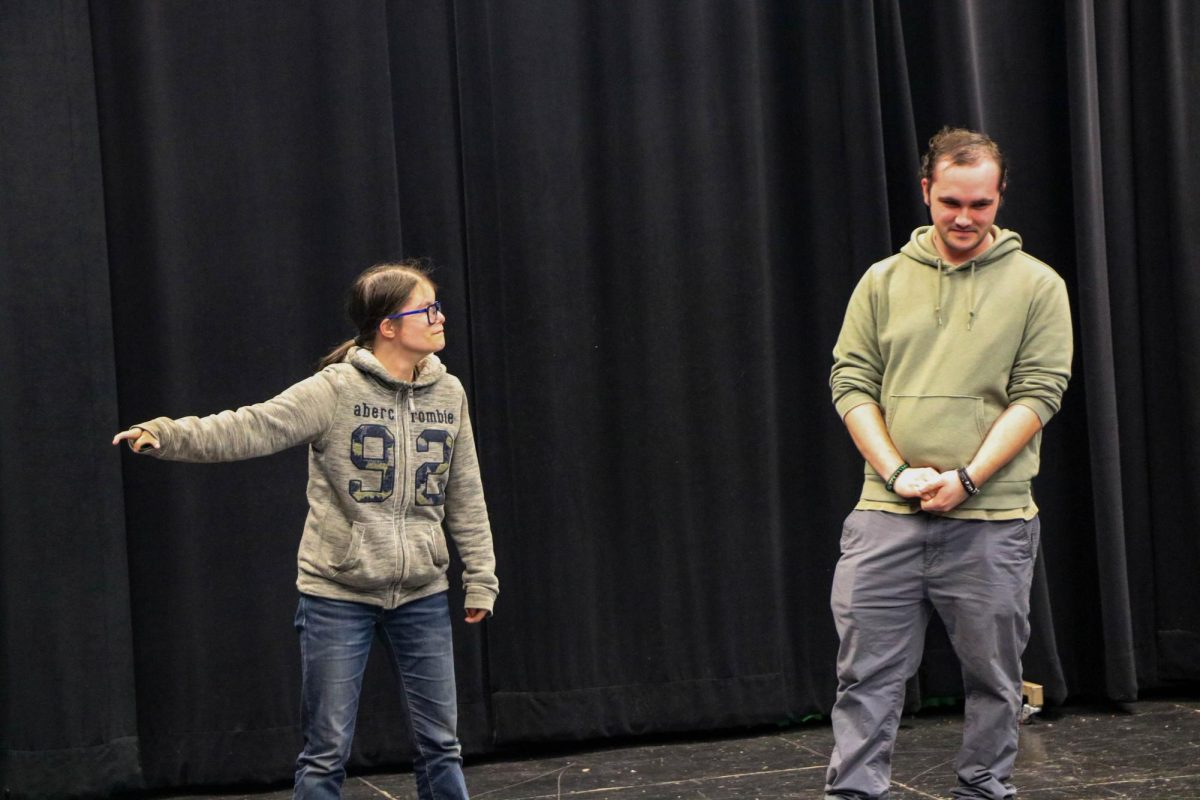Walking was “out of the question.”
Former mixed martial artist and ARC student Devin Johnson was 22 years old when an injury suffered during MMA practice left him fighting for his life. When he woke up from the two-week medically induced coma doctors put him in to save his life, he was paralyzed from the neck down, having broken his fourth cervical vertebrae.
Doctors told his mother that there was just a three percent chance he would ever regain any movement below his neck.
During his adaptive PE class at ARC on Thursday, Johnson, now 24, did precisely what his doctors had said was out of the question — he walked.
“They already have walkers there at the school, so I asked (my friend) if she could grab it,” said Johnson.
“When I got on the walker, I took a few steps — then I walked around the whole room in a big circle. I was really surprised. I didn’t expect it. But I know what I can do now.”
The process of regaining control over his lower body has been slow but steady, according to Johnson.
“I was injured May 2012,” said Johnson. “I broke my neck and was paralyzed immediately. At first I couldn’t move my arms or my legs, or my fingers, or anything. It was depressing.”
Johnson’s injury, known as a C4 fracture, is a catastrophic injury that has the potential to disrupt breathing, and can result in death from asphyxiation.
Encouraging signs came next. Johnson started to regain some movement in his limbs. He didn’t hesitate to get back in the gym, and back to the life he’d always known.
“I started working out immediately from there, getting better, I guess, every time. It’s hard to work out some parts of your body. Some parts of your body work, and some don’t. You have to force those parts to work, even though they don’t want to,” said Johnson.
Johnson has been enrolled in the adaptive PE class at ARC for four semesters, and says that the class, along with the support of the staff, has been instrumental in his recovery.
“I honestly don’t have a clue where I would be if I wasn’t working out as much as I do with them,” Johnson said.
Johnson has previously walked with the assistance of support braces and parallel bars, a walkway mounted to the floor that is designed to help physical therapy patients regain ambulatory skills, often used in conjunction with the assistance of a physical therapist. This time, however, was the first time he’s walked with nothing more than a walker.
“I was scared because I didn’t have anybody — someone was there with me, but it was all me. I didn’t have any braces on, or anything. I could have fallen at any moment. I was super scared,” said Johnson.
“I just put my trust in God, said ‘Whatever, just go with it,’ and I didn’t fall.”
Johnson was with adaptive P.E. instructional aide Brian Sprinkle, who he’s been working with for two semesters, during his walk. Sprinkle says he’s “not surprised” that Johnson began to walk, rather, he’s surprised how quickly Johnson has progressed.
“Since (his injury), he’s been doing nothing but trying to walk again,” said Sprinkle. “He stays every day, pretty much, at least an hour over, just to keep working.”
Adaptive P.E. professor and women’s softball coach Lisa Delgado agrees with Sprinkle that Johnson’s work ethic is incomparable.
“There’s lots of people in here that are in wheelchairs, but I don’t know that anyone has the desire that he has to get out of it,” Delgado said. “After you watch Devin, I just think anything is possible.”
“He takes away the fact that we complain about our day and what’s wrong in our lives. He comes in with the greatest mood, he’s always got a smile on his face,” said Sprinkle. “But at the same time, he works really hard. A lot of the times where we might quit because it’s so hard, he knows he can’t quit. He wants to be fully functional again. He wants to walk around campus and live a normal life.”
The process hasn’t been easy. Johnson’s voice started to falter as he spoke about the bad days.
“There were some days where I tried to stand, and … there are just some days where I just can’t do it. Some days your legs just don’t want to work. But (friends in adaptive P.E.) motivate me to just keep pushing,” said Johnson.
Johnson was only informed months after the fact what doctors initially told his mother.
“I was in a coma for two weeks. So (the doctors) told my mom that I would have a three percent chance — they didn’t even bring walking into the category, that was out of the question — there was a three percent chance of moving anything from my neck down,” said Johnson.
“I’m glad they didn’t tell me that.”












